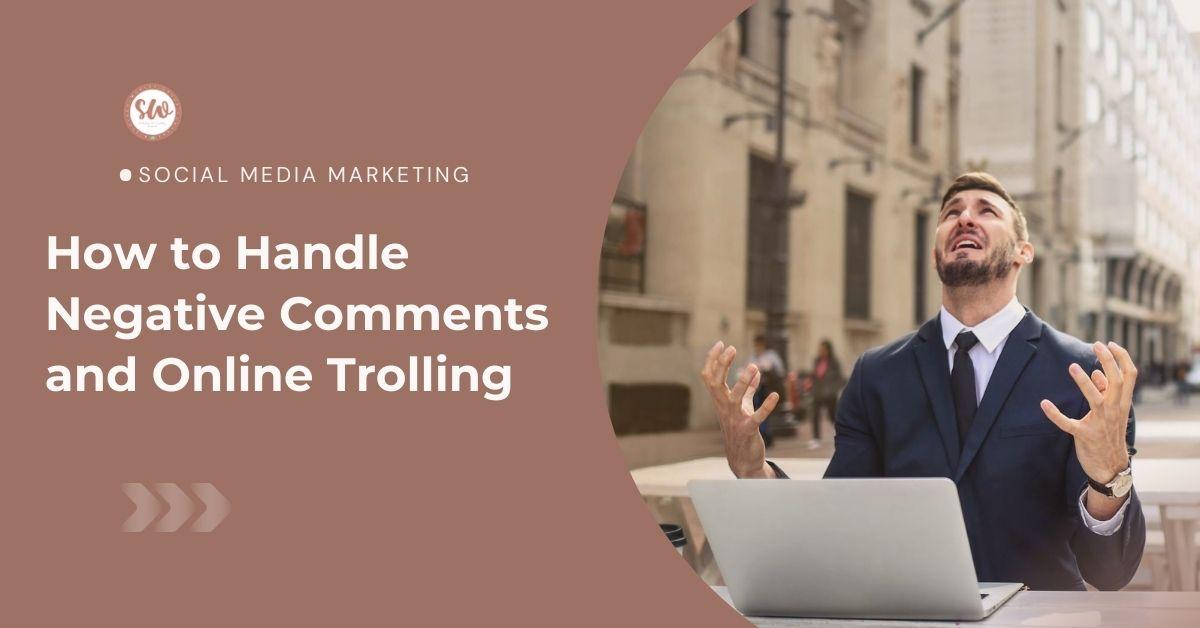- How to Avoid Hashtag Overuse and Spammy Tactics - September 12, 2025
- SEO vs LEO: What Every Business Needs to Know About the Next Digital Marketing Shift - August 23, 2025
- How to Use Facebook Groups to Build a Loyal Community - August 21, 2025
The internet has given brands the power to connect directly with their audience — but it’s also opened the door to criticism, complaints, and the occasional troll. While negative comments and online trolling can feel personal, how you handle them can make or break your online reputation. The key is to respond with professionalism, empathy, and strategy.
Understand the Difference Between Criticism and Trolling
Not all negative comments are created equal. Constructive criticism, even if harsh, can provide valuable insights into your business, products, or services. Trolling, on the other hand, is often baseless, inflammatory, and intended to provoke an emotional reaction.
Learning to distinguish between the two is critical:
Criticism often contains specific feedback and is sometimes accompanied by a genuine desire for improvement.
Trolling is vague, overly hostile, and seeks attention rather than resolution.
By identifying the intent behind the comment, you can choose the right approach — whether that’s engaging in a productive conversation or not engaging at all.
Respond, Don’t React
Your first instinct might be to defend yourself immediately, but quick, emotional responses can escalate the situation. Instead, take a breath, assess the comment, and decide the best course of action.
When the feedback is legitimate, acknowledge the concern, thank the person for sharing it, and offer a constructive next step. For example:
“We appreciate your feedback and understand your frustration. Please send us a direct message with your details so we can make this right.”
This approach shows your community you take concerns seriously and are committed to resolving them.
For trolls, sometimes silence is more powerful than a response. If you do engage, keep your reply short, factual, and free from emotion.
Keep It Public (When Appropriate)
When a customer voices a complaint on a public post, your response isn’t just for them — it’s for everyone watching. A professional, empathetic reply can turn a potentially damaging moment into a brand-building opportunity.
Address the comment publicly to show transparency, then invite the customer to continue the conversation privately through direct messages, email, or phone. This not only resolves the issue more effectively but also limits the potential for further public escalation.
Need help managing your brand’s online reputation? Let’s talk.
Don’t Delete (Unless It’s Harmful)
Deleting negative comments can sometimes do more harm than good, as it can make your brand appear defensive or unwilling to address concerns. The exception is when comments contain hate speech, threats, spam, or anything that violates your platform’s community guidelines.
When you must remove a comment, document it first (screenshot) and, if necessary, explain publicly why it was taken down. This keeps your brand aligned with its stated values and community rules.
Maintain Your Brand Voice Under Pressure
It’s easy to slip into defensive or sarcastic tones when dealing with negativity, but consistency in your brand voice is key. Whether your tone is formal, friendly, or witty, keep it aligned with your overall communication strategy — even in tough moments.
This not only protects your brand image but also reinforces trust with your audience, showing them you remain calm and professional under pressure.
Use Feedback to Improve
Even negative feedback can be a gift. It highlights blind spots, product issues, or service gaps you might not have noticed. Keep a record of recurring complaints and work with your team to address them.
By demonstrating that you act on feedback, you turn critics into advocates and show your community that you value their input.
Have a Crisis Response Plan
Don’t wait for a social media storm to figure out how to respond. Establish a clear protocol for handling different types of online negativity, including:
Who monitors comments and messages
How quickly to respond
When to escalate issues internally
Guidelines for tone and messaging
With a plan in place, you can act swiftly and consistently without letting emotions drive your actions.
Final Thoughts
Negative comments and trolling are part of the digital landscape — but they don’t have to harm your brand. By responding thoughtfully, staying professional, and seeing feedback as an opportunity, you can turn potentially damaging moments into trust-building experiences.
At SW Marketing & Consulting, we help brands not just survive the challenges of online engagement but thrive in them. As a bilingual marketing agency specialising in both English and Spanish markets, we blend data analysis, strategic planning, and cross-cultural promotions to strengthen your online presence. From target profiling to expert media planning and buying, we ensure your brand’s voice stays clear, consistent, and respected — even when the internet gets loud.




